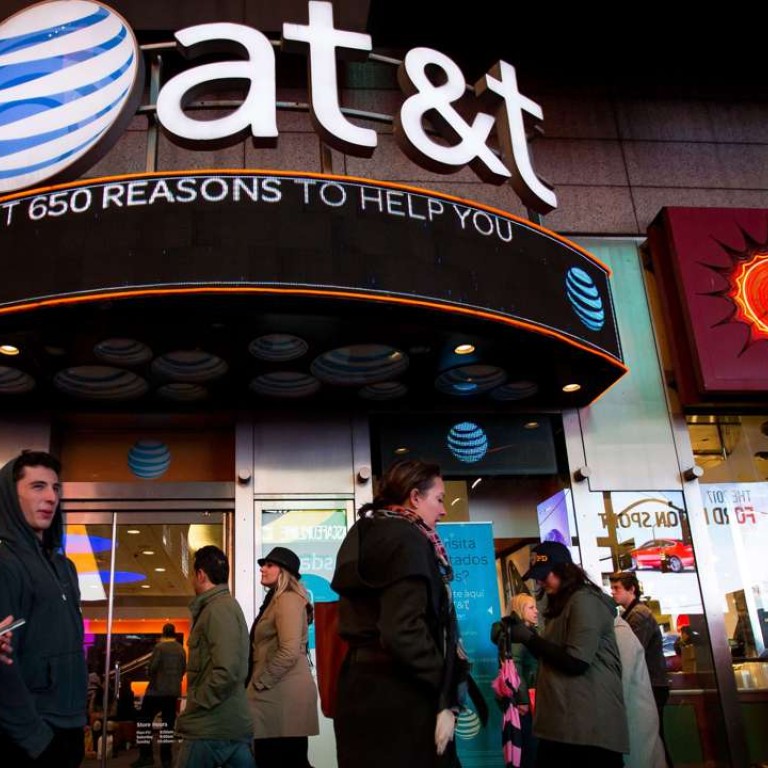
AT&T bid for Time Warner is no sure deal
Proposed mega merger has already sounded alarm bells, including in China, and regulatory hurdles loom large
AT&T’s proposed US$85.4 billion acquisition of Time Warner will create the world’s largest telecom and entertainment company if it succeeds. That’s why it is getting everyone’s attention, not the least of which will be intense scrutiny from US anti-trust regulators. The telecom, internet and entertainment industries are still digesting the full implications of the merger since its disclosure late last week. Even companies in China are concerned. Dalian Wanda, owned by mainland billionaire Wang Jianlin, has snapped up America’s biggest cinema operator AMC and European theatre giant Odeon.
The mega US merger may well make it even more difficult for newcomers such as Wanda to compete in the media and film business. It will also potentially affect mainland internet giants such as Alibaba, Tencent and LeEco, which consider the entertainment industry as an important avenue to expand their global business, especially in the US market. But it may be too early to worry. Time Warner’s shares are trading roughly at a 20 per cent discount to the implied US$107.50 per share cash and stock offer at the start of this week. This means investors don’t expect the deal to go through. Regulatory hurdles will be tough. The merger means AT&T will own such prized brands as HBO and CNN, as well as film studio Warner Bros.
There are concerns that the telecom giant may violate so-called net neutrality to favour the internet traffic of its own content providers at the expense of rivals. Scrutiny by the US Justice Department and other regulators will start after the presidential election next week. Republican candidate Donald Trump has said it would create too much control and concentration in the hands of a few players. Democrat Hillary Clinton worries it would not enhance competition or benefit consumers. The bosses at AT&T and Time Warner have argued the opposite. They also appear willing to accept some restrictions on AT&T’s use of exclusive contents to gain a competitive advantage across different markets. But that would, of course, defeat the whole purpose of the merger.

